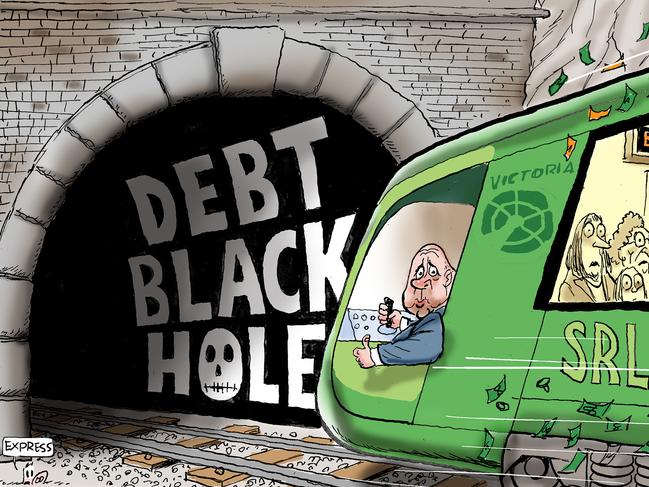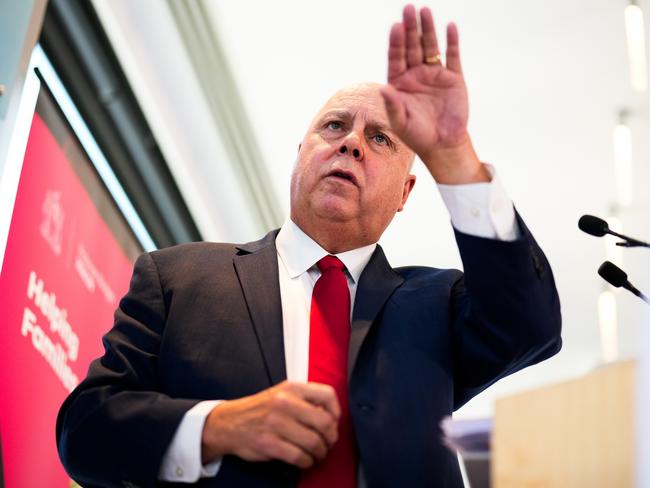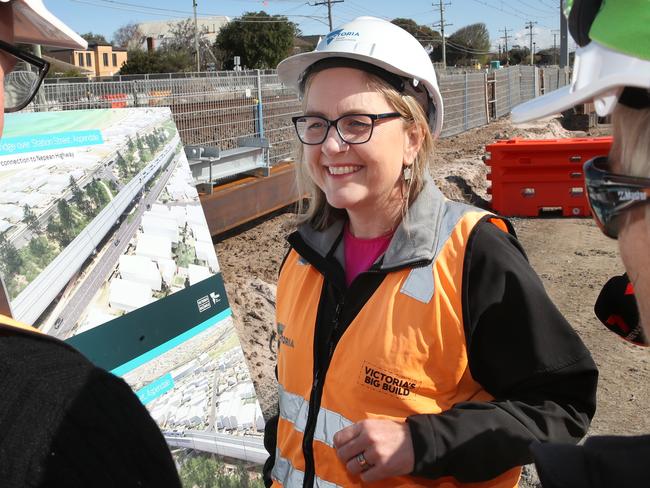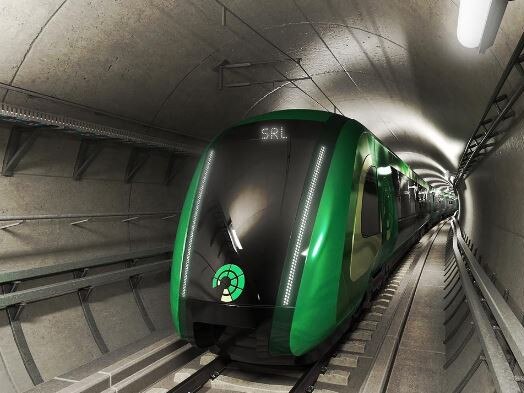Victorian Budget 2024: Heavy cuts, projects shelved but debt still soaring
The state’s record debt will soar to an unprecedented $187.8bn – or $67,000 for every household – despite broken election promises, delays and cuts in health, education and major projects.
Victoria
Don't miss out on the headlines from Victoria. Followed categories will be added to My News.
Victoria’s record debt will soar to an unprecedented $187.8bn – or $67,000 for every household – despite broken promises, and delays and cuts in health, education and major projects.
But as Melbourne’s Airport Rail Link is grounded, the government has recommitted to the controversial $216bn Suburban Rail Loop.
Victoria’s bad news budget, unveiled Tuesday, reveals almost $47m has been added to the debt pile every day since last May’s figures.
Several flagship election commitments have been shelved and policies stalled amid a budget sold as curbing debt and reining in spending.
They included scrapping the Arden medical precinct, delaying the Melbourne Airport rail, slowing mental health initiatives and putting a raft of community hospital initiatives under review.
The state’s first homebuyers scheme was ditched and a trial of sick pay for casual workers was abandoned. Overall infrastructure spending will be scaled back, from a peak of $24bn to $15.6bn by 2027-28.


Yet despite the cutbacks, government spending will continue to climb to an estimated $98.2bn over the next 12 months, $5.4bn more than forecast in last year’s budget.
It included a blowout of hundreds of millions of dollars in government wages which are forecast to grow to almost $40bn over the forward estimates.
Overall spending is expected to increase by an average 2.2 per cent over the forwards, higher than the 1.9 per cent forecast last year.
It will be partially offset by a higher than expected tax take, with the government to collect $2.2bn more than forecast.
But Treasurer Tim Pallas on Tuesday backed in the state’s fiscal position while delivering his tenth budget.
Mr Pallas said Victoria remained on track to return to an operating surplus of $1.5bn by 2025-26 despite posting a $2.2bn deficit this year – more than double the government’s predictions.
The government also argued its spending remained well below average nominal economic growth at 5.3 per cent, meaning it was shrinking the size of government as a share of the economy.
Although there were no new taxes, the state’s waste levy and fire services levy were both hiked in a move expected to rake in about $1bn.

Premier Jacinta Allan said helping families was key to the budget, with investments in education, health, transportation and emergency response.
It included the government’s free kindergarten program, upgraded and new schools, and free dental check-ups and glasses for kids.
It also included a $400 one-off payment for parents of 700,000 students, the centrepiece of the government’s measures to address cost-of-living pressures.
“It’ll take pressure off the family budget, and make sure kids have everything they need to live. We want our kids to be happy and healthy,” Ms Allan said. “With this budget we’re delivering cost-of-living help investing in the services and support the Victorians rely on.
“This is a budget and a government that is all about helping your families.”
Despite grim fiscal forecasts, that could worsen amid poor consumer spending and ongoing global conflicts, Victoria’s economy is tipped to outpace all other states over the next five years.
Budget forecasts show the economy is expected to grow by 2.5 per cent in 2024-25, employment will lift by 1 per cent, while unemployment will rise to 4.25 per cent. Wage growth is also expected to slow from 3.75 per cent in 2024-25 to 3.24 per cent in 2027-28.
While Mr Pallas said sensible decisions underpinned a responsible budget, ratings agencies expressed concern about the rising debt and fiscal position, which has been blamed on Victoria’s response to the Covid-19 pandemic.

In a post-budget report, Moody’s Investor Service raised doubts about debt affordability, warning it would “significantly constrain Victoria’s operating profile over time”.
It also cast doubt on the ability of the government to stabilise debt, warning it would maintain negative pressure on the state’s rating.
Anthony Walker, an analyst at S&P Global Ratings, confirmed Victoria’s current AA rating was the lowest of any state or territory.
“Victoria’s fiscal recovery has been much longer than that of many subnational governments around the world,” he said.
“Today’s budget confirms the government’s accounts are in large structural fiscal cash deficit when accounting for capex (capital expenditure).”
Small Business Australia described the budget as a “whole lot of nothing” while Victorian Chamber of Commerce and Industry boss Paul Guerra said the “no frills” budget would help reset the business community’s relationship with the government.
Opposition Leader John Pesutto said the government had failed its own target of driving down debt.
“This tenth Labor budget is proof that those who’ve caused the problems can’t be relied on and trusted to fix the problems,” he said.
“If Victorians are wondering what 10 years of Labor looks like, it’s more debt and more interest on the heads of Victorians in the middle of the cost-of-living crisis.”




